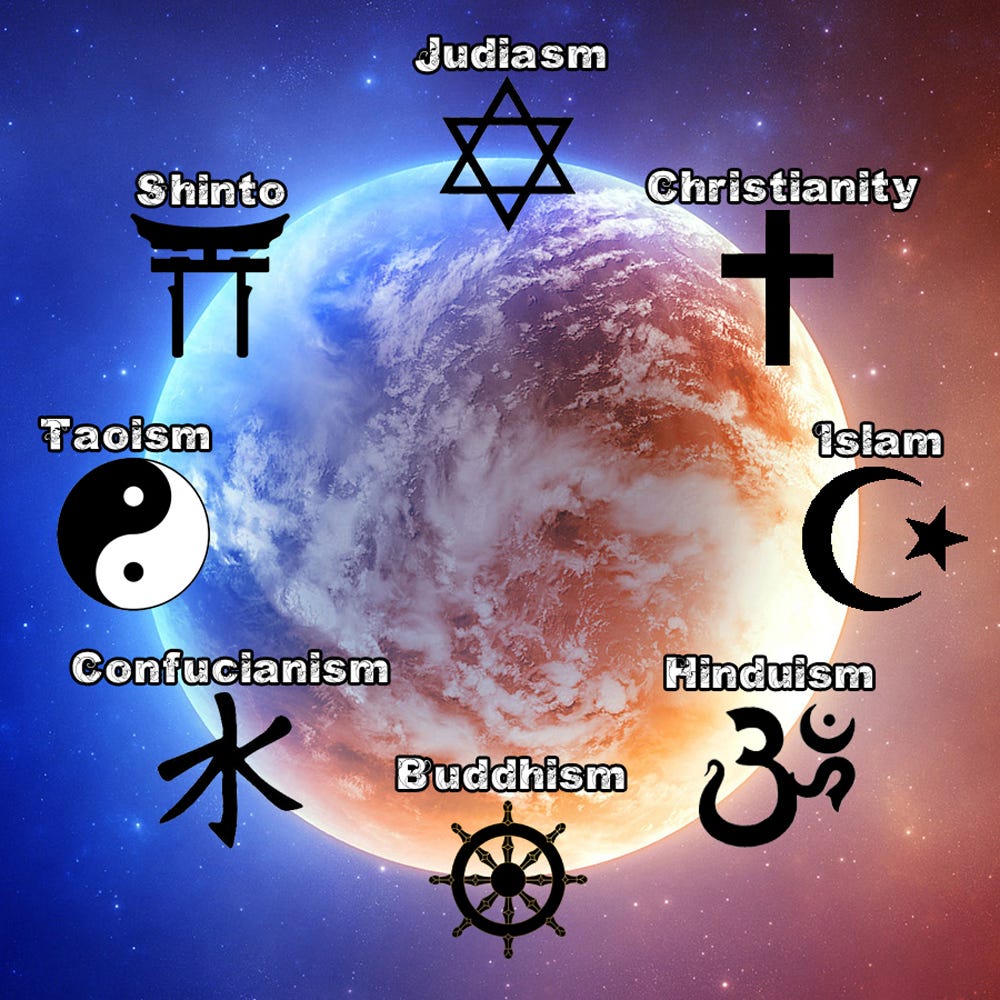Monday, December 4, 2023
Why Are There So Many Religions If God is Real?
One of the most frequent criticisms of religion by atheists is the lack of agreement on various religions. They typically claim that if God existed then there wouldn’t be such a great divide in our views on Him. Unlike Science, where they claim there is universal agreement, there is no agreement on religion.
However, science is riddled with disagreement if we look at the issue of questions. For instance, various religions are asking different questions. Likewise, different branches of science are asking different questions as well. If one were to confuse the language used with the context of the question asked there would be a great deal of disagreement and confusion. For instance, if a biologist who is interested in addressing what the mechanisms of organisms are, they use language much different than say a physicist who is interested in the motion of things and identifying these trajectories, measurements, and so forth. And so, religion is no different than science with regards to answering questions. The different ‘religions’ emerge with the advent of what question is asked.
Let us unpack this claim. First, there aren’t ‘religions’ but only Religion. Religion is nothing more than the recognition, strategies, and attempts at ‘binding back’, changing the environment of, or addressing concerns on how to live and what to do to make the world ‘better’. So, with that settled, it is predicated on questions about how to do this. The secular humanist would see the religious obligation as merely addressing what brings about the most human flourishing. But then again this says nothing to what this human flourishing is and if this affects how we achieve it.
The theist is interested in exploring the question of the whoness of being, or to what extent there is a person or agency behind being. The muslim seeks to explore the whatness of this being God through seeing His transcendence and apophatic features. And indeed this is a legitimate and true question. To what extent can God be far removed from and separate, holy, from the imperfection of what He is. Likewise, Judaism seeks to explore the whatness of God in history. The Hebrew is interested in God IN history and His actions through His people that He has set aside to work with.
The Buddhist is interested in the how, how this god-ness is expressed in nature, reality, and the ultimate release of desire and longing. The Hindu in a similar manner is interested in the howness of God in Nature and observed reality and how this is reflected in the unobserved.
And every other ‘religion’ is some derivation of this (even the ancient pagan religions seek to understand the whatness of God or being in Nature). But there is one question that was never asked. One question that could never be objectified in a set of propositions, concepts, etc. Who is God? No one ever thought to ask and if they did they would see how ridiculous the question sounds. And yet, it is exactly the sort of question that needed answering. We cannot figure things out on our own. We have to be introduced to the person behind it, not merely told about Him. In the words of Robert Frost, we can never think things out, we have to see them acted out.
God had to demonstrated His transcendence through revealing Himself. God had to reveal Himself in history by being a part of history. God had to show us how to transcend want and desire, how to Nature and ourselves relate to one another. He had to do this by being a person. He had to come down and show us. The incarnation was just as inevitable as 2+2 coming before the answer 4. Only in Christ do we have the answer to the most important question, who is God, who is Love, who is the one that loves and sustains us.
And so, there aren’t many religions, but only ONE religion with many answers. And there is one question that is the most pressing for us, the most relevant and important, who is God? Jesus answered that NOT with a set of teachings but WITH His life and the story that He left in History.
Subscribe to:
Post Comments (Atom)


No comments:
Post a Comment